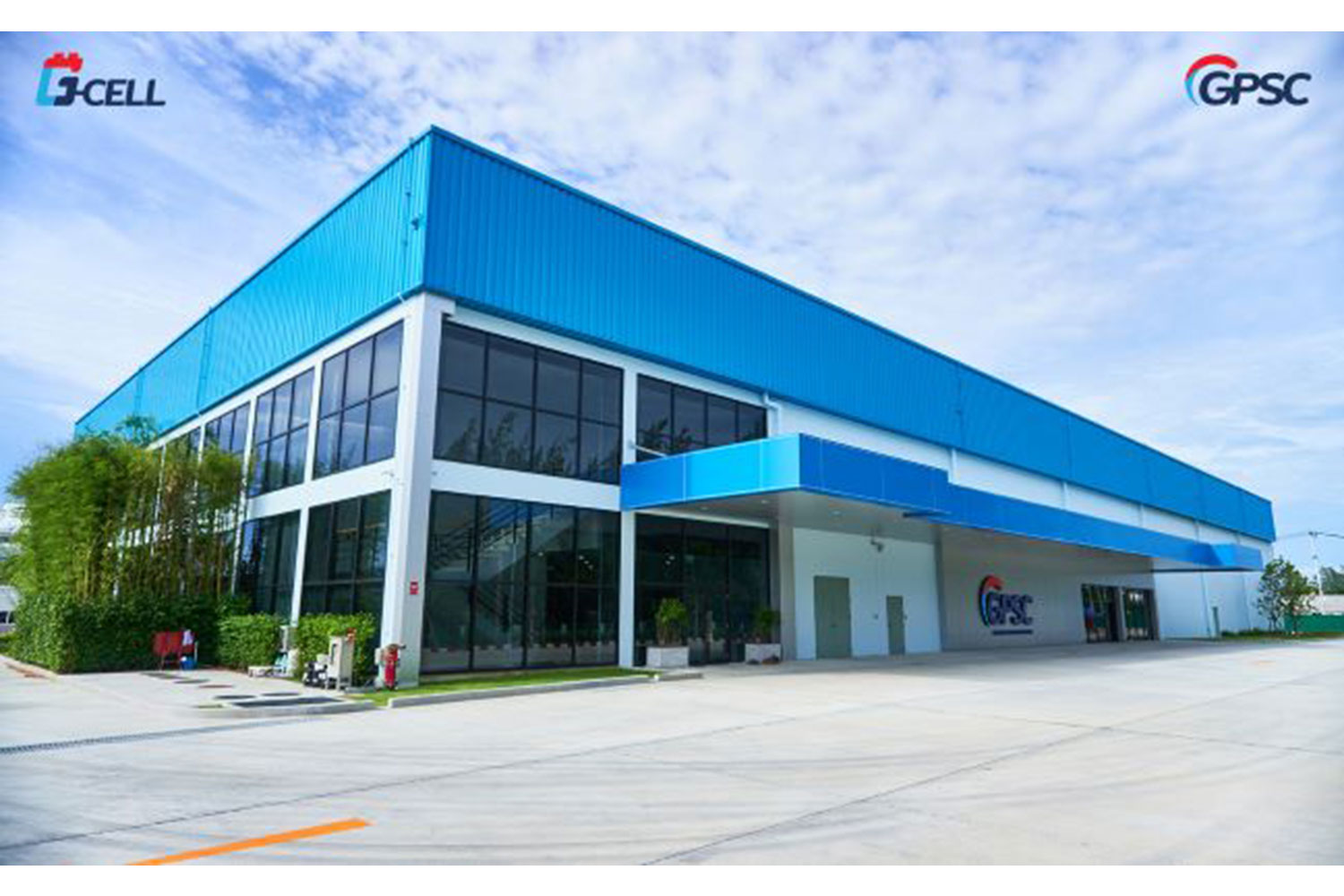
Leading with a vision to channel innovative energy into future power, Global Power Synergy Public Company Limited (GPSC) has become the first ASEAN country to introduce an energy storage factory using SemiSolid technology. Located in Map Ta Phut Industrial Estate in Rayong Province, the new factory makes possible an annual power production capacity of 30 megawatts/hour, eventually rising to 1 gigawatt/hour.
The launch on 19 July 2021 was presided over by Gen. Prayut Chan-o-cha, Prime Minister and Minister of Defence;
Mr. Supattanapong Punmeechaow, Deputy Prime Minister and Minister of Energy; Mr. Distat Hotrakitya, Secretary-General to the Prime Minister; Prof. Dr. Thosaporn Sirisumphand, Independent Director and Chairman, PTT Public Company Limited (PTT); Mr. Auttapol Rerkpiboon, President and Chief Executive Officer, PTT; Mr. Pailin Chuchottaworn, Chairman of the Board, GPSC; Mr. Worawat Pitayasiri, President and Chief Executive Officer, GPSC; along with other Executive Committee members, GPSC.

Three strategic moves toward sustainable energy for the future
Mr. Worawat Pitayasiri, President and Chief Executive Officer, GPSC, elaborated on the energy business’ collaboration between PTT and GPSC, saying: “Building on PTT Group’s vision to develop a sustainable energy business with regard to the ecosystem, GPSC has become a driving force among leading battery manufacturers in revitalising the ecosystem.”
Currently, the collaboration operates through GPSC’s three strategic programmes (3S), as follows:
Synergy and Integration: aiming to create additional value and integrate asset management to strengthen GPSC’s commercial forte and ensure first-rate services and products for clients.
Selective Growth: aiming to build on GPSC’s competitiveness alongside PTT Group.
S-Curve Business: aiming to partake in energy business breakthroughs that don’t threaten ecosystems by using clean and renewable energy to create sustainable energy business.
“The launch clearly consolidates our attempt to develop clean and renewable innovative energy business for the better,” Mr. Worawat remarked.

G-Cell battery innovation saves cost and increases efficiency
“G-Cell energy storage factory is the first in Southeast Asia to incorporate innovative battery technology that reduces manufacturing processes and therefore enables significant cost savings. It also utilises 24M technology derived from GPSC’s investment in China seven years ago,” Mr. Worawat further explained.
What is 24M–SemiSolid Technology?
SemiSolid technology for battery manufacturing is licenced by 24 Technologies Incorporation (24M) for GPSC to both manufacture and sell the products. In the initial phase, G-Cell and LFP (Lithium Iron Phosphate) are utilised to achieve 30 MWh manufacturing capacity/year. Soon, GPSC will increase this base capacity to 100 MWh/year, and ultimately 1 GWh/year. The progress in battery manufacturing and energy storage is seen as defining GPSC as Thailand’s leading energy management solution provider.

China-based investment leads to electric vehicle industry growth in Thailand
As for the long-term domestic goal of GPSC, Mr. Worawat explained, “GPSC stepped into a joint-venture agreement with China’s Anhui Axxiva New Energy Technology Co., Ltd. (AXXIVA) to manufacture NMC (Lithium Nickel Manganese Cobalt Oxide) batteries also using 24M technology. The product both accommodates EV cars for everyday use, and serves the company’s implementation of S-Curve strategies that expedite growth in the passenger EV sector. It is estimated that this will enable GPSC to gain 30% domestic sales margin within 2030.”
What makes LFP-NMC battery stand out from the rest?
Mrs. Rosaya Teinwan, Executive Vice President – Business Development of GPSC explained the outstanding features included in the new product.
“G-cell factory utilises Development Process Innovation using 24M’s SemiSolid technology to reduce manufacturing cost. But that’s not all. LFP batteries carry an affordable price tag but have a high safety standard and 4,000-lifecycle performance. That makes it perfect for both buses and small vehicles, including Thailand’s tuk-tuks. In the first year of operation, the factory is expected to produce batteries for 100 buses and 3,000 tuk-tuks.

“A slightly more expensive NMC battery that comes in a smaller size with lower weight and around 1,000 lifecycles is suitable for installation in most electric vehicles. Through GPSC’s investment in Chana, we are on the way to significantly upgrading our batteries. In the future, we plan to also base our NMC manufacturing factory in Thailand to accommodate the continuing domestic expansion of the electric vehicle industry here.”
For more information, please visit www.gpscgroup.com